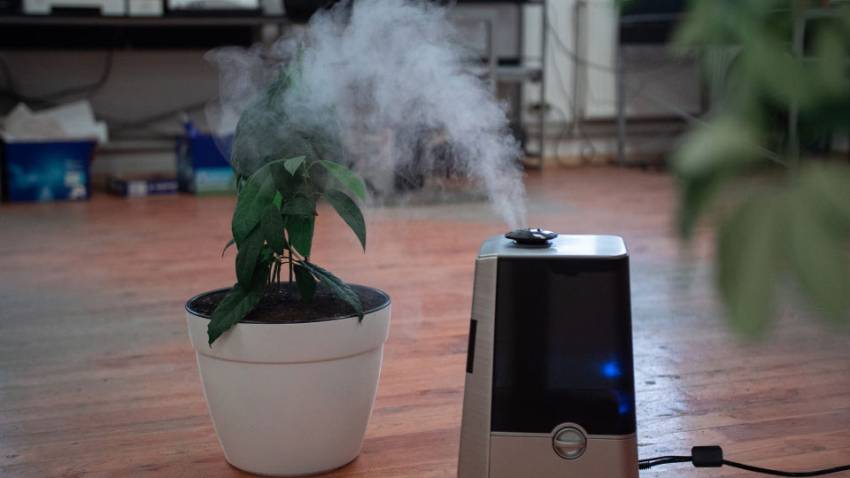How can air purifiers reduce allergy symptoms?

New Delhi : Air purifiers have been a popular trend for some years now. In simple words, an air purifier is a device that acts as a magnet for air pollutants. It cherry-picks the harmful elements in the space it is placed, which strips the air quality of harmful toxins.
However, it would be controversial to state if any human-made machine is capable of producing pure air.
What is meant by Pure Air?
The 'Air' refers to a combination of several gases in the environment. Typically, air comprises 78% of Nitrogen (N) and 21% of Oxygen (O₂) as its major components. Argon (Ar) and Carbon dioxide (CO₂) are also present in proportions of 0.93% and 0.4%, respectively.
Air, which is not pure, has an imbalance in the composition, as mentioned earlier. There are no definite quantities seen in the gases that are a part of the air.
Furthermore, pure air is free of pollutants.
What are Air Pollutants?
To pollute means to corrupt. To corrupt is a way to harm something. Substances harmful to the human body are included in the category of air pollutants.
Six pollutants were defined by the Environmental protection agency (EPA) as "criteria" for air pollutants. Consequently, they are governed by the establishment of human health and environmental criteria.
These science-based guidelines provide information about the determination of permissible limits. These six contaminants are:
● carbon monoxide
● lead
● oxides of nitrogen
● ozone at the ground level
● emissions of particles (often referred to as particulate matter)
● oxides of Sulphur
Air Purifiers for Allergies
Allergies are really bad. The constant coughing, sneezing, and itchy watery eyes make daily life a real struggle. The question is, can one turn to air purifiers to help attain relief from these symptoms?
The answer is, Air purifiers can work for allergies as long as one considers two things. Firstly, the HEPA Filter and Secondly, the ratio of Air purifier size to that of the room.
What is a HEPA filter?
HEPA refers to High-Quality Particulate Air. The mechanical air filter pushes the air from a fine mesh and traps harmful elements like dust mites, pollen, and tobacco smoke.
As per US National Institute - for Occupational Safety and Health, a genuine HEPA filter is one that can capture 99.97 percent of dust particles that are 0.3 microns in diameter.
0.3 diameter microns particles are not of much significance. They can get through the HEPA filter. However, larger and more harmful particles are filtered more efficiently by the filter.
HEPA Filter in Diminishing Allergy-causing Particles
These air purifiers aid with allergies by attracting the allergen triggers they are floating about and trapping them. They do not get an opportunity to float again until they are stuck.
It is important to do so because the floating particles are the only ones that enter our system as we breathe. Until they float and get into the respiratory tract, the settled ones do not trigger an issue.
In your home, using a HEPA filter will eliminate most airborne particles that may render allergies worse. But the air-suspended particles aren't the only ones in a house. The rugs, bedding, and drapes, and sitting on countertops and tabletops, and even more.
It's also necessary to get rid of the root of allergens and irritants wherever possible and keep the area clean. The most efficient way to keep cigarette smoke out of your house, for instance, is not to smoke indoors at least.
Filter to Room Size Ratio
As important as it is to have a HEPA filter installed, its size also matters. The air purifier one chooses should be as per your room size. There is a simple formula for measuring the square footage of any room.
Step 1
Formula to be applied: Length (L) * Width (W) = ft2
Step 2
Selecting an air purifier that matches or exceeds the square footage of the room reasonably.
Concluding, if one has allergies related to the air they breathe indoors, investing in a good quality air purifier is a good step.








